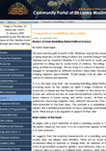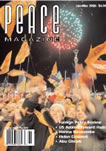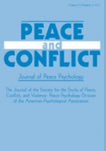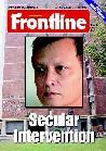Book Reviews
Towards a Nonkilling Sri Lanka (Review)

Excerpt: The most precious gift on earth is life. Whatever may be the causes for the killings, societies tolerating or being observers of the killing of others are societies living in the shadow of barbarism. Has Sri Lanka reached such as situation? Whether it is in the North or South, people in the country are increasingly subjected to killings due to varied forms of violence. The killings carried out in the name of war are being justified increasingly. We are living in a culture of impunity. On 21st September 2007, we will be engaged in Satyagraha at different locations island wide, including at Hyde Park grounds in Colombo, bringing together approximately 35,000 people from all walks of life to protest against this rising culture of violence and impunity (…).
A Nonkilling Paradigm for Political Problem Solving (Review)

Excerpt: We are about to enter the sixth year of the new millennium, and war and terrorism remain the norm to resolve international conflicts. All the experience of bloody wars of the previous century and the wisdom thereby gained seems to have been wasted. Professor Glenn Paige in his recent book, Nonkilling Global Political Science argues if political scientists, scholars who dedicate their lives to the study of political power in its multi-faceted manifestations do not challenge seriously the assumption of lethality, then why would one expect political leaders and citizens of the world to do so. Is a nonkilling global society feasible? Paige in this path-breaking book asks this simple yet profound question, but goes a step further to challenge his discipline, questioning, Is a nonkilling global political science achievable? On both counts, through insightful analysis and substantive evidence, his answer is a resounding “Yes!”
Download «A Nonkilling Paradigm for Political Problem Solving» [246.47 KB]
Nonkilling Global Political Science (Review)

Excerpt: In the fourth year of the new millennium, war and terrorism are the norm for resolving international conflicts. Has nothing been learned from the bloody wars of the previous century? That’s the question asked by Glenn Paige, professor emeritus of political science at the University of Hawaii, in Nonkilling Global Political Science. Paige argues that if political scientists do not seriously challenge the acceptance of lethality, then one could hardly expect citizens to do so. He also asks: “Is a nonkilling global society feasible?” then challenges his discipline, asking whether a nonkilling global political science is achievable. On both counts, his answer is a resounding “yes”.
Is a nonkilling society possible? (Review)
by Paschal Eze

Excerpt: Challenging and overturning shallow but widelyheld beliefs in anathema to the insouciant but a pleasure to the progressive. It is for those who believe knowledge is not static and resist the temptation to find solace in watertight compartments of concepts and ideals, thus enlarging the coast of knowledge. Professor emeritus Glenn D. Paige’s book, Nonkilling Global Political Science, speaks of nothing less, more so with its glaring conceptual clarity and the cascade of buttressing historical, scientific and spiritual evidence of non-violence and nonkilling.
A Nonkilling Paradigm for Political Scientists, Psychologists, and Others (Review)

Excerpt: The familiar word, nonviolence, is almost comforting in its generality. The word nonkilling, however, confronts and startles us with its specificity. Being less familiar, it challenges us to find out where it came from and how its author means it to be used. Glenn Paige, in Nonkilling Global Political Science, proposes that his discipline adopt as a goal the promotion of a nonkilling world, that is, a world in which people do not kill each other. This is not straightforward, because traditional political science is violenc-accepting and killing-tolerant in several ways. Paige aims to provoke a nonkilling reconceptualization of political science and, by extension, psychology, law, economics, and other disciplines. (…)
Politics of non-violence (Review)

Excerpt: Is a nonkilling society possible? Is a no-killing global political science possible? Attempting to answer these two seemingly simple but profoundly complex questions, the author, a veteran teacher of political science and nonviolence, pronounces a daring yes. In our globalising world, which is marked by a distinct monetary mania, politics is the last thing on people’s minds. If and when politics surfaces on the global market’s agenda at all, it is often in the contexts of investment security, and more recently, the international campaign against terrorism.
